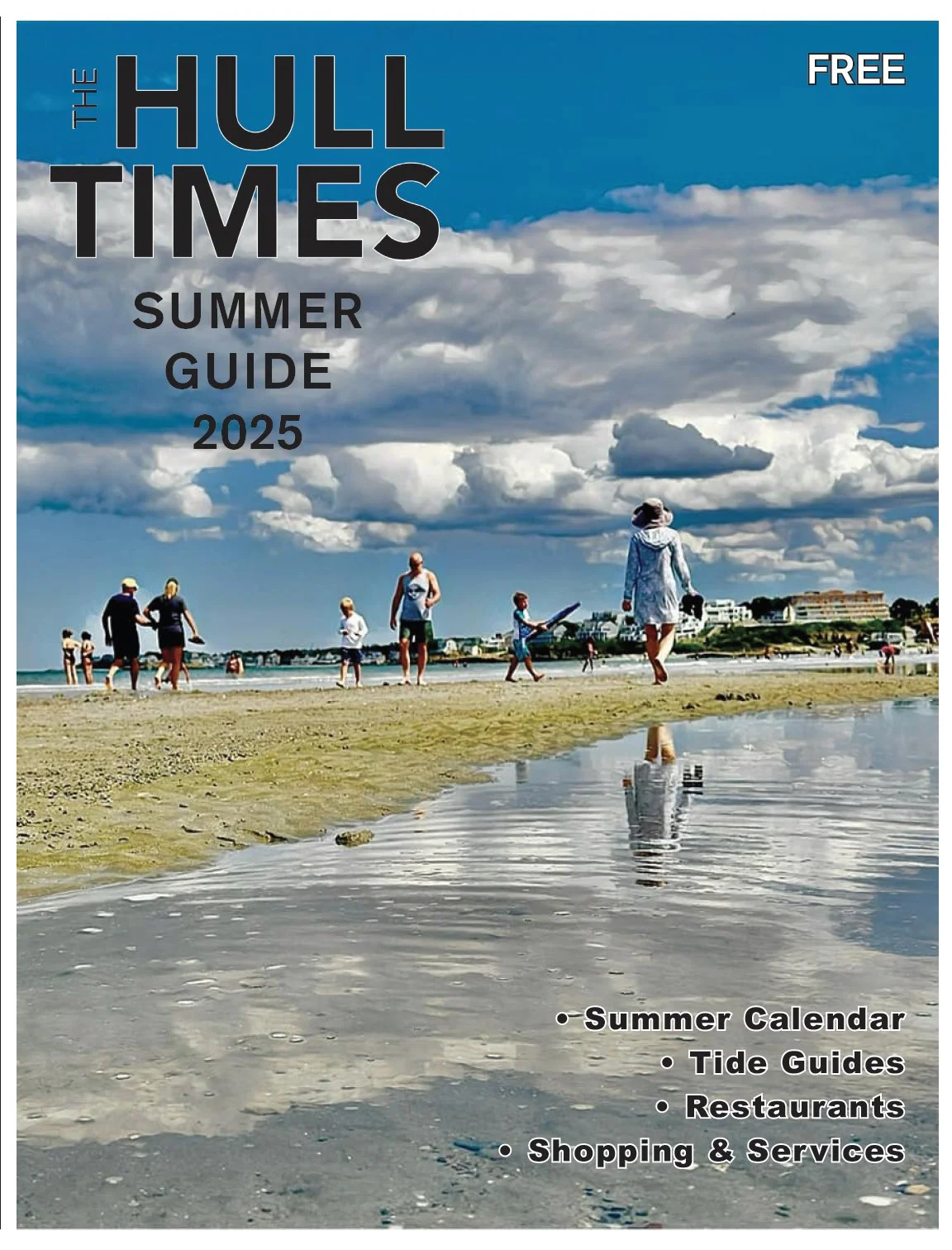Land Court judge rules in favor of Graves Light owners in property tax suit
/By Christopher Haraden
A long-awaited decision by a Massachusetts Land Court judge has determined that Graves Light is not within Hull’s boundaries and its owners do not owe property taxes to the town.
A JUDGE HAS RULED THAT GRAVES LIGHT IS NOT PART OF HULL, BUT DID NOT INDICATE THE COMMUNITY IN WHICH IT LIES. [JENNIFER WHELAN PHOTO]
Judge Diane Rubin issued her decision on Aug. 1, eight months lawyers presented closing arguments, and more than a year after they submitted 151 exhibits during a trial last summer. The 50-page decision included a detailed analysis of historic records stretching as far back as the Colonial Land Grants from 1634 and multiple maps, deeds, and other documents. The judge also visited the remote Graves Ledge at the entrance to Boston Harbor to survey the seascape with her own eyes.
Her months of research and review resulted in the comprehensive decision document, which incorporated expert testimony from both sides and concluded with the fairly straightforward statement on the very narrow issue of the suit – whether Hull could claim the lighthouse for taxation purposes: “I find that Graves Ledge lies neither within the municipal land nor tide water boundaries of the Town of Hull.”
The suit was filed in February 2020 by David and Lynn Waller and Robert Sager, who bought the property in 2013 from the federal government for $933,888 and received a tax bill for $3,552.42 for fiscal year 2020. Waller contended that Graves Light was not previously included in the Hull assessors’ database like other public properties, but was arbitrarily added after he bought it.
“In our heart of hearts we knew we were right and we stood our ground,” David Waller said this week. “We had so many wonderful supporters throughout this process who reached out to us, creating a groundswell of support. It feels good to be vindicated and we want to thank our Mintz legal team as well as the judge for her carefully crafted and well-reasoned decision.”
“Based on her interpretation of the many documents and trial testimony, the judge concluded that Graves Island is not within the tidal or land jurisdiction of the town,” Town Counsel James Lampke said. “She did not declare in whose jurisdiction it is in, but alluded to any further action on that issue involving the Commonwealth and Boston.”
“The decision was very complete, detailed and thorough,” Lampke added. “It is clear the judge spent a lot of time on the 150+ exhibits, many stipulations and other matters pertaining to the case. She noted in her decision the many state, federal, and other documents which identified Graves Ledge as being within Hull, but concluded, particularly based on historic and legal documents, that it was not in fact within Hull.”
Waller said his deed from the federal government describes the property in terms of latitude and longitude, and references Broad Sound Channel, a shipping route in the Boston Harbor Islands National Recreation Area. Documents provided by a US Coast Guard office in Virginia indicated that “the property is not located within the corporate limits of any municipality.”
In court filings, Lampke disputed this characterization, noting that unlike other states, Massachusetts does not recognize unincorporated areas. The judge mentioned this issue, but sidestepped drawing a conclusion.
“I decline to wade into these deep waters, because I conclude this issue is not squarely
before the court,” Rubin wrote in the decision. “…I decline to decide whether there can be unincorporated land in Massachusetts, having concluded the issues raised by the amended complaint and counterclaim, and in light of the town’s late presentment of this issue which is not necessary to the disposition of this case.”
Lampke filed a counterclaim against Graves Light and Fog Station LLC, Waller’s corporate entity, in order to prevent further renovations of the 113-foot-tall lighthouse without permits from the Town of Hull.
During the trial, Waller’s lawyer, Peter Biagetti, presented documents and maps dating as far back as the 1600s that he says indicate that Graves Light is not within Hull’s boundaries. Lampke, a lighthouse historian, has introduced other maps that show the opposite circumstance, as well as documents from the federal government that list Graves as part of Hull.
Graves Light has been on the National Register of Historic Places since 1981. Graves Ledge was named for Thomas Graves, vice admiral of John Winthrop’s fleet and a resident of Lynn who became America’s first foreign trader.
Under the terms of the sale, the Coast Guard maintains the Graves fog horn and beacon, which began flashing its 2-2-2 signal in 1905. The Wallers and Sager renovated the lighthouse and use it as a vacation home.
Waller said he acted in good faith and the renovations to the property comply with regulations, and the attempts to collect property taxes are an example of “mistreatment” by the town. Lampke framed the dispute as a border-protection issue, and asserted that the town was not interested in preventing Waller from doing further work on the property, but sought clarity on the exact location of the town’s offshore boundaries.
“We thank Judge Rubin for her meticulous and thoughtful decision,” said Biagetti, the attorney for the Graves Light owners. “It’s a victory for every taxpayer who ever received an unfair tax bill but did not have the resources to fight back, unearth all of the historical records, make their case at trial, and secure a fair result.”
Lampke did not indicate whether the town planned to appeal Rubin’s decision, noting that it was still being analyzed.
“The town will likely have additional comment after the decision has been further reviewed,” Lampke said. “We are disappointed, but respect the judge and court and know that the town put forth a strong defense to this lawsuit.”















